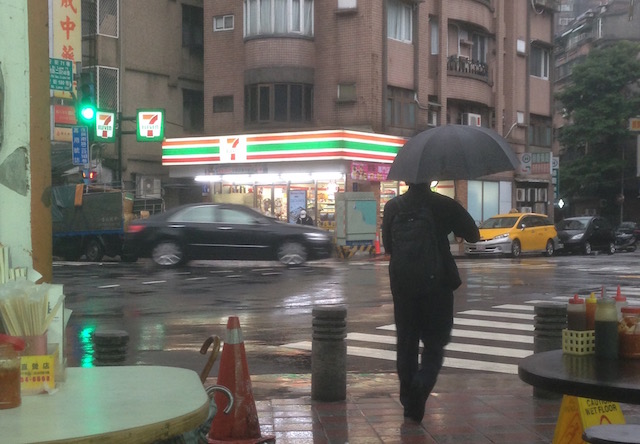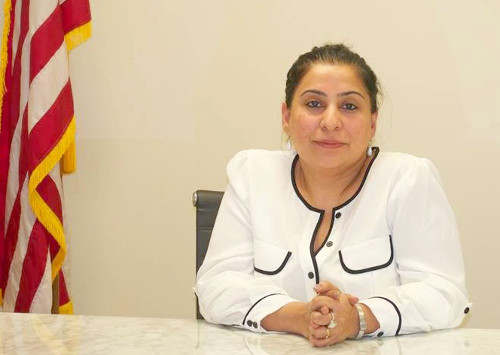Yue saos and postpartum meal services are helping new Chinese mothers in Brooklyn cope with the no-shower, no-cold-drink, no-going-out demands of ‘sitting the month.’
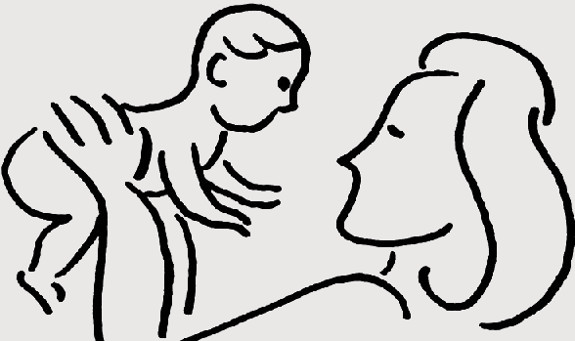
October 21, 2016
“Over the past twenty years, I have helped more than one hundred new mothers,” Yuen Yang said.
Yuen Yang, 67, is a yue sao – a nanny for babies and mothers in the first month after birth.
In traditional Chinese culture, mothers who have just given birth are supposed to be on complete bed rest, keep themselves warm, and not do any serious work – and that includes taking care of the baby – for the first month. This postpartum confinement is known in China as “sitting the month.”
Yue saos, or “sitting the month aunties or nannies,” like Yang help new moms get through the first month. And Yang is doing her business in her own home – in Brooklyn.
“If you can follow the rules for thirty days, it can bring you a lifetime of health,” Yang said with a smile. And it’s not just health benefits: If the mothers respond well during this month, it can even make them look younger, Yang says.
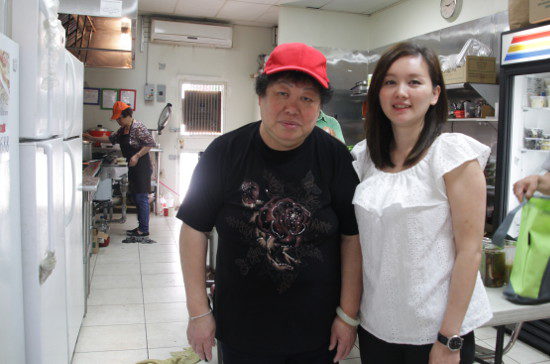
According to Chinese tradition, “sitting the month” or zuò yuè z? helps new mothers restore balance to their bodies after giving birth. Postpartum is one of the important periods in a woman’s life. Sitting the month is considered an opportunity for the female body to rest and heal, and get over the pain and actually be healthier.
During the sitting-the-month period, new moms are not allowed to do certain things — such as bathe or wash their hair — to keep the risk of contamination low. Cold water is forbidden, even during the hot summer months; water to be drunk must always be warm. New mothers are also forbidden from going out of the house, since it might expose them to sickness and cold.
In the old days, new moms were not even allowed to brush their teeth. Such extreme restrictions have fallen by the wayside in more recent years, but some taboos remain; up to this day, new mothers are not allowed to cry, even if they feel depressed, because it is said to be bad for their eyes.
“Yang prescribed a number of Chinese traditional methods for postpartum health. For example, a cabbage leaf inside the bra will help make the milk flow more smoothly and stave off infection in the breasts.”
Yang said she herself went through the sitting-the-month practice, not once, but four times. She married when she was only 17 years old, and gave birth to two daughters and two sons. Every time after she gave birth, she followed the rules very strictly: she didn’t take a bath or wash her hair for the entire month.
Today, at 67, she is very proud of how she was able to take good care of herself. “Can you believe that I turned 67 this year?” Yang said.
When she was 25, Yang decided she wanted to help other moms and started learning the practice by assisting an experienced yue sao. She also read a lot of books about the sitting month and women’s postpartum health.
Among the new moms she had helped early in her career is her own daughter and daughter-in-law. “They never have to worry about the first month after giving birth,” she said.
It was when she moved to the United States that she started working full-time as a yue sao.
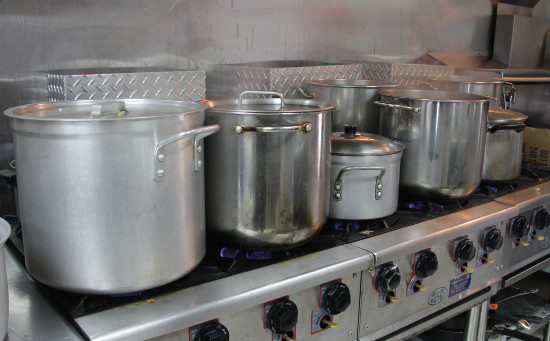
Along with the prescriptions for behavior, there are also strict dietary rules to follow during the sitting month. These require knowledge of Chinese herbs and medicine. Traditionally, it was the grandmother who helps the new mother to adhere to the diet. She would prepare the food according to Chinese specifications, so that the new mother could rest. However, the demands of the modern world have made the practice difficult.
Yang prescribed a number of Chinese traditional methods for postpartum health. For example, a cabbage leaf inside the bra will help make the milk flow more smoothly and stave off infection in the breasts. Though many women use an ice pack to relieve tightness and pain, Yang adamantly insists that the coldness is a bad idea.
Helping new mothers to sit the month is not an easy job. Every mother is different and Yang said she needs to understand every individual’s physical and health condition before designing her own specific meals.
But Yang has a secret recipe: “You must cook with your heart,” she said.
In the Chinese immigrant community in New York City, many new moms do not have family members to help them with the first month. Their grandmothers or mothers are not with them here in the United States. And these new moms are too young to know the practice.
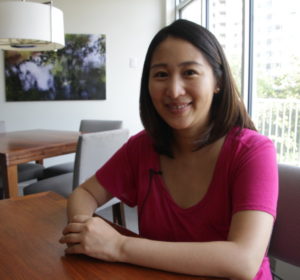
Enter professional yue saos like Yang.
Some new mothers from out of state also have no one to help them get through the first month. So they fly to New York City to give birth and they spend the sitting month in the city. They stay with their babies in the yuesao’s house for the entire month. After the recovery period, they will return to their home states with their respective babies.
Some new mothers move in with Yuen Yang with their babies as soon as they check out of the hospital. The mothers sleep in a room separate from the babies. “As a yuesao, I am also good at taking care of the newborn – changing their diapers and feeding them milk,” Yang said.
Some babies cry all the time and Yang said she can immediately find out the reason and calm the baby down. The baby sleeps in a crib in Yuen Yang’s room, so the mom can focus on her own rest time.
So, what actually happens during the sitting month?
Much of the time, the mother rests, while the yue sao takes care of feeding the baby. Within 12 days after giving birth, the caretaker must help the mother in discharging lochia from the uterus. Expelling the lochia is a detoxification process. After that, the new mothers need strength and this is where the diet becomes important.
The food is prepared in a specific way with particular ingredients, each designed to address different health needs of the mother. A fish and papaya soup aids in promoting milk production, while a potent broth of ginger and sweet vinegar with pigs’ feet helps rejuvenate the blood with protein and collagen, Yang said.
The fee for a yue sao for the entire sitting month, including food, could run up $3,000. Yang said she is booked through the end of the year.
“During the sitting-the-month period, new moms are not allowed to do certain things — such as bathe or wash their hair — to keep the risk of contamination low. Cold water is forbidden, even during the hot summer months; water to be drunk must always be warm.”
However, the luxury of taking a month off from work and staying with a dedicated caregiver is not available to many new mothers. Even if the new moms have time to stay at home, they don’t always have the knowledge to cook the complex soups or prepare the specialized meals. Because of this, plus the strong belief in the need for a postpartum diet, meal delivery services have sprung up specifically to meet this growing demand.
Since 2011, Jane Chow and her mother-in-law have been running the Chen Mommy Kitchen, which supplies meals to new and lactating mothers that are delivered daily. On average, Chen Mommy Kitchen prepares 20 meal sets a day, which include the required five items: breakfast, lunch, dinner, beverages and dessert. Daily delivery for a month costs $2,700.
“Most of the meals use ginger and sesame oil,” Jane said. These items provide ‘warmth’ to the body, a key element in restoring the body’s balance.
They have served more than 1,000 customers, with 70 percent immigrants from mainland China, 20 percent from Taiwan, and others from countries like Korea and Japan, Jane said.
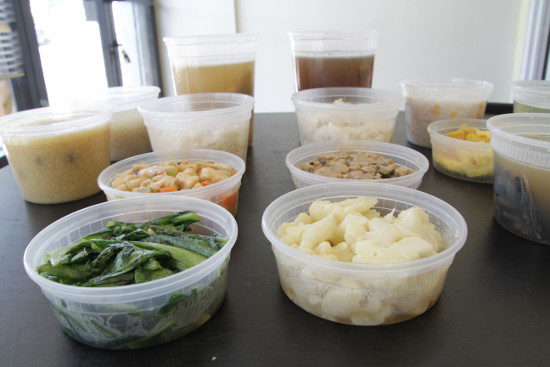
Every morning at 3:00 a.m., Jane’s mother-in-law, Mommy Chen, goes to the kitchen to start cooking. There are five to six helpers cutting fresh vegetables and making soups. At around 7 a.m., the set meals are sent out for delivery to customers in New York City. Mommy Chen also ships frozen vacuum-packed meals through Fedex to locations as far away as Chicago and Florida.
Alison Tan, 35, a customer of Mommy Chen, gave birth to her second child just three months ago. She also has a two-year old daughter. She said she did not follow the sitting-the-month rules very strictly. She said she could not bear not taking showers for an entire month. She went straight to the shower as soon as she got home from the hospital.
But she was very conscious of her health. She knew it was important not to get sick and to speed up her recovery. Her mother and grandmother both told her about the need for postpartum diet. She did not listen to them at first, but for her second child, she took their advice and bought all her first-month meals from Mommy Chen.
Like Allison, Jane of Chen Mommy Kitchen is a mother of two children. And like Allison, Jane didn’t listen to her mother-in-law and didn’t really follow the sitting month culture because the weather was too hot when her first child was born. But after she gave birth to her second baby, she followed the custom.
“I was lucky to have my mother-in-law with me. She took good care of me. I definitely felt the difference before and after,” Jane said.
(Illustration above is from ClipArt Panda)


